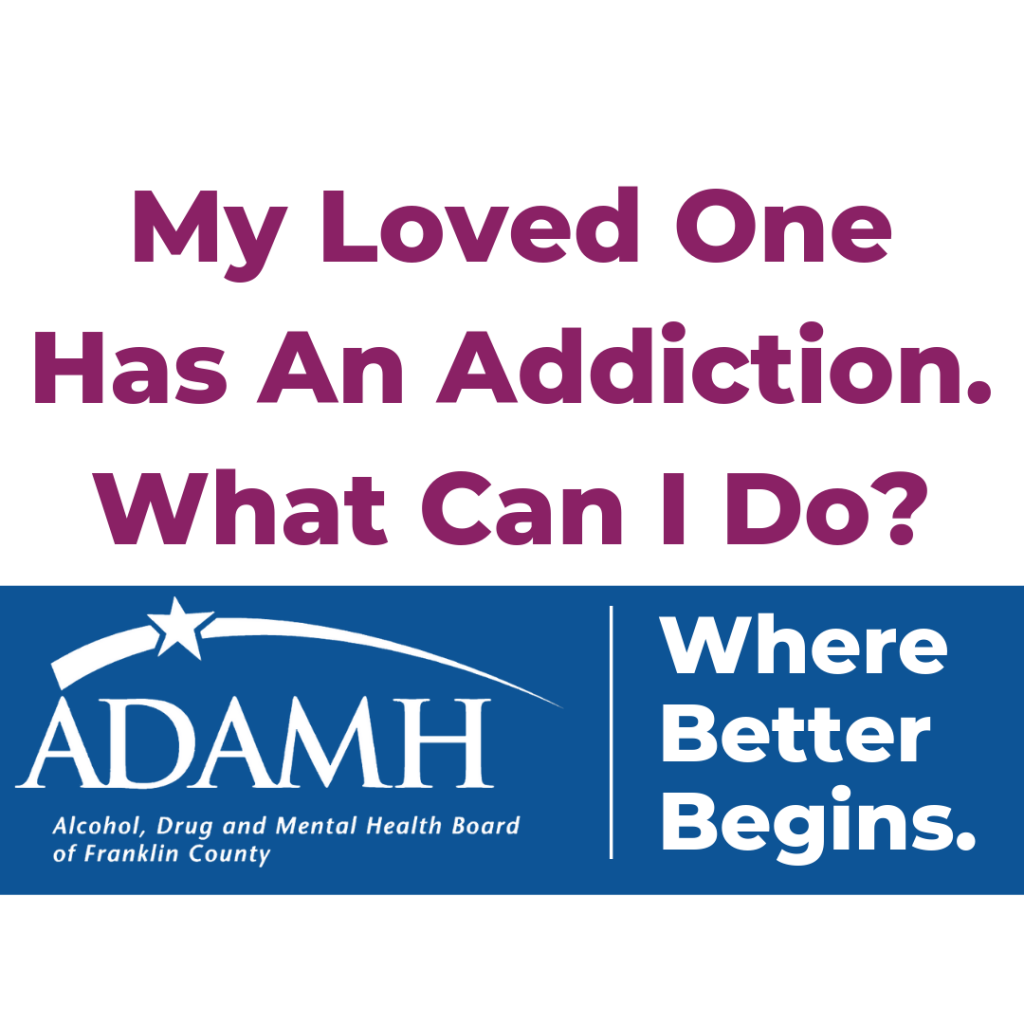By: Dr. Delaney Smith
ADAMH Medical Director
My Loved One Has an Addiction. What Can I Do?
As a family member or friend, it is important to understand that addiction is a chronic, relapsing disease. And just like any other medical condition, treatment is possible. Before you jump ahead and accuse them of drug misuse if you're just guessing, you might want to make sure that the person in question is actually taking drugs, by using drug testing kits such as these you can find on test country and other test kit providers, you're able to test your loved one for various substances.
Start by Understanding
Understanding some of the science behind addiction starts with brain chemistry. Drugs or alcohol activate brain circuits that naturally exist to tell us what feels pleasurable or rewarding. However, drugs energize these circuits to a new level, creating a much stronger response than what results from the body’s naturally occurring neurotransmitters. This intense feeling of pleasure can drive the person to use drugs again and again.
When someone uses drugs for a prolonged period of time, the brain changes. First, tolerance develops, meaning it takes more of the drug to produce those same euphoric feelings. Further, the actual working structure of the brain shifts. Eventually the person becomes dependent and can no longer feel “normal” without the drug. They require it just to avoid the pain of withdrawal. At this point, the person makes pursuing their drug of choice their main daily purpose and as their obsessive need progresses, they often act in ways that would otherwise be out of character.
Stopping drug use does not immediately revert the brain to normal. Research suggests that the brain may require months or even years to reverse the structural and functional changes caused by drugs. It’s this reality that often causes relapses. While some people may be able to maintain their sobriety after receiving treatment the first time, many people require longer-term or repeated treatment.
As you try to better understand what your loved one is going through, learning more about addiction and hearing from others who have similar experiences can be tremendously helpful. You may also consider joining a support group.
Most importantly, know that you are not alone.
Additional Readings
Addict in the Family By: Beverly Conyers
Healing the Addicted Brain By: Harold C. Urschell, III, M.D.
Setting Boundaries with Your Adult Children By: Allison Bottke
The Addictive Personality: Understanding the Addictive Process and Compulsive Behavior By: Craig Nakken
The Enabler: When Helping Hurts the Ones You Love By: Angelyn Miller

